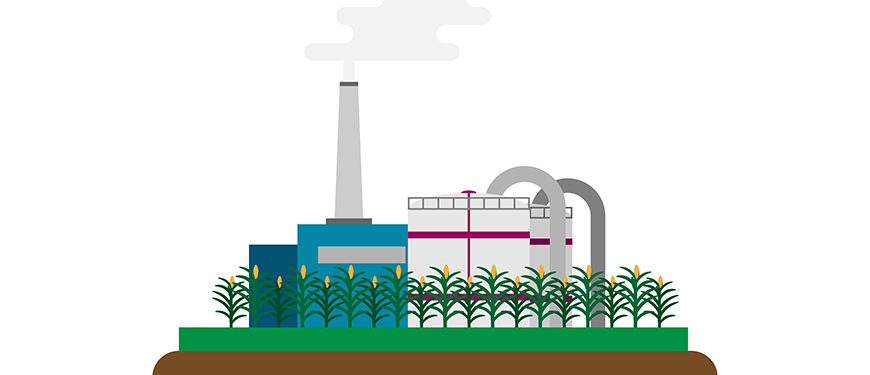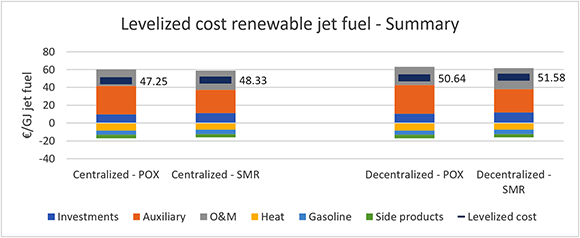Alexander Nielsen
Master Thesis - Energy Technology - 2020
The Danish energy sector needs to move further towards the goal of the Paris agreement and the Danish goal of CO2 neutrality by 2050.
The international transportation sector accounts for almost 50% of the green house gas emission in Denmark in 2018. This makes it imperative to focus on reducing carbon content fuel.
This paper investigates the socio-economic LCOE of production renewable jet fuel on Funen. The investigation includes two scenarios; Centralized and decentralized. The centralized scenario, evaluates the cost for a Fischer Tropsch facility placed in Odense, and the decentralized scenario, evaluates the cost for 8 Fischer Tropsch facilities, distributed over Funen. Each of the scenarios are investigated with two different pathways; A pathway where the syngas is produced by partial oxidation, and a pathway with syngas production with steam methane reforming.
The paper further investigates the degree of integration of the facilities.
Through calculations, the centralized scenario of renewable jet fuel is found to be the cheapest scenario. Furthermore, the pathway with partial oxidation is the cheapest pathway. Summary of the LCOE of renewable jet fuel on Funen is shown in the below seen column chart.
Click on the chart to see a larger version
Regarding integration of the facilities, no complications were found. The integration of the centralized scenario is as easy as the integration of the decentralized scenario.

